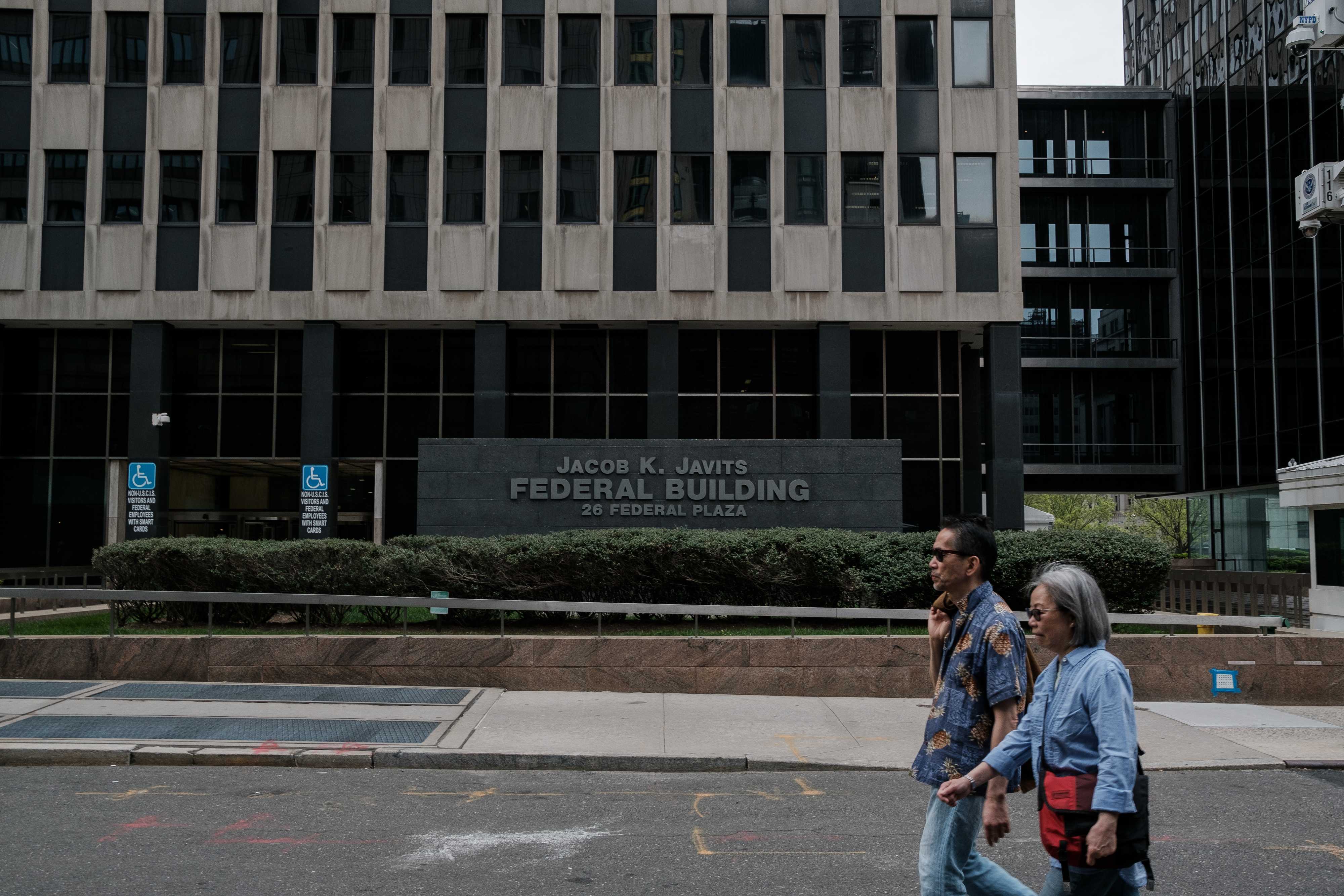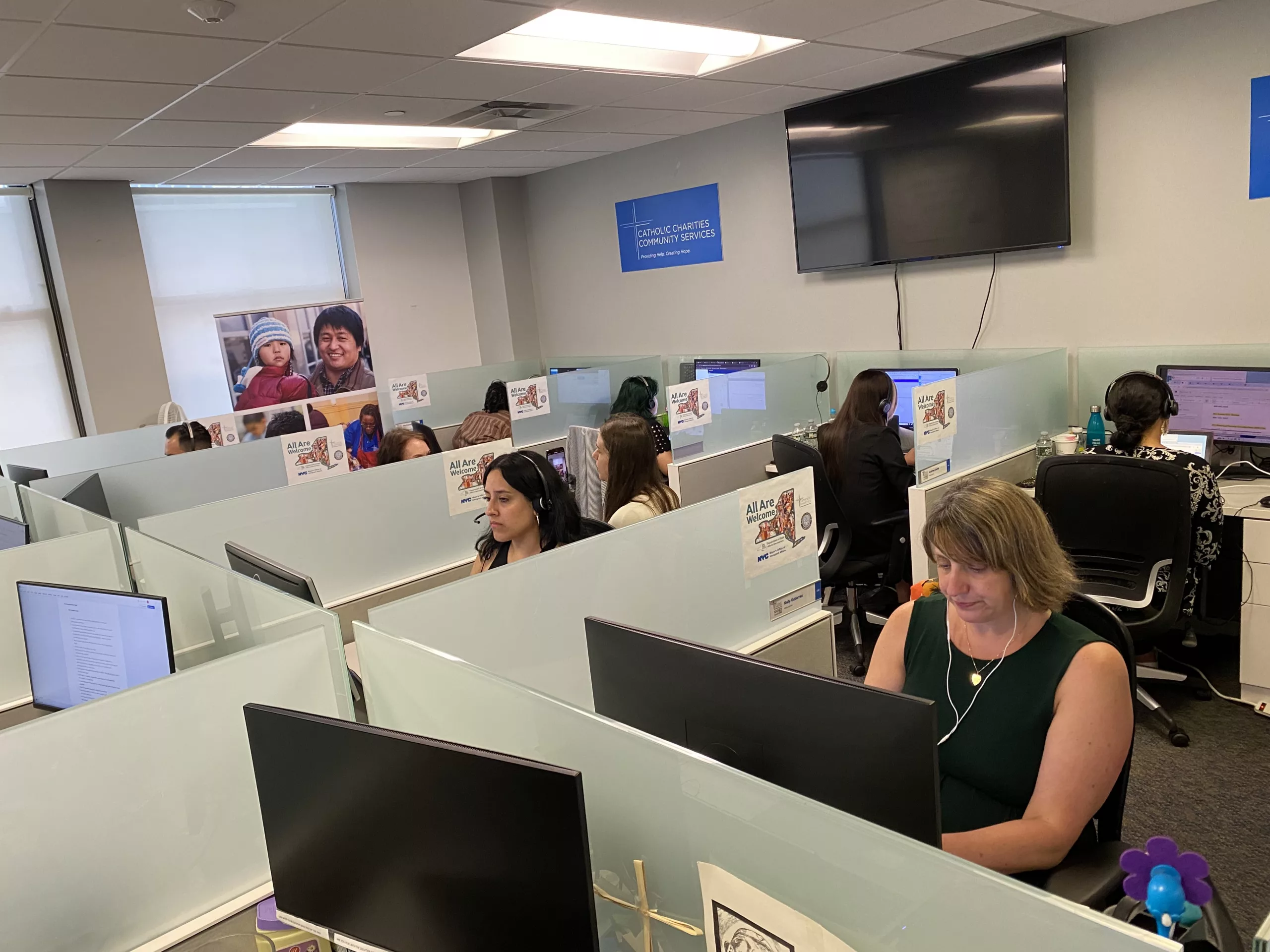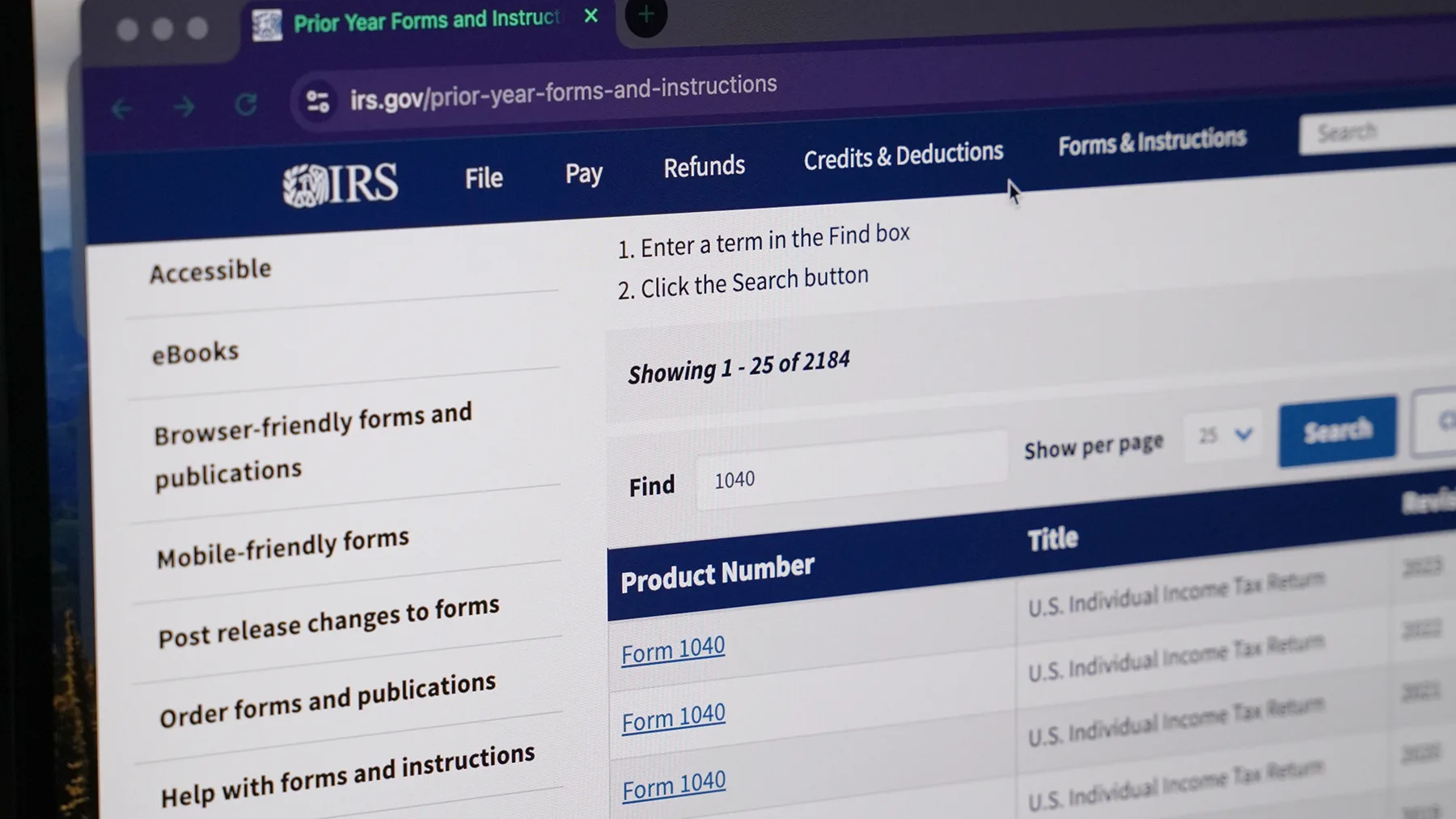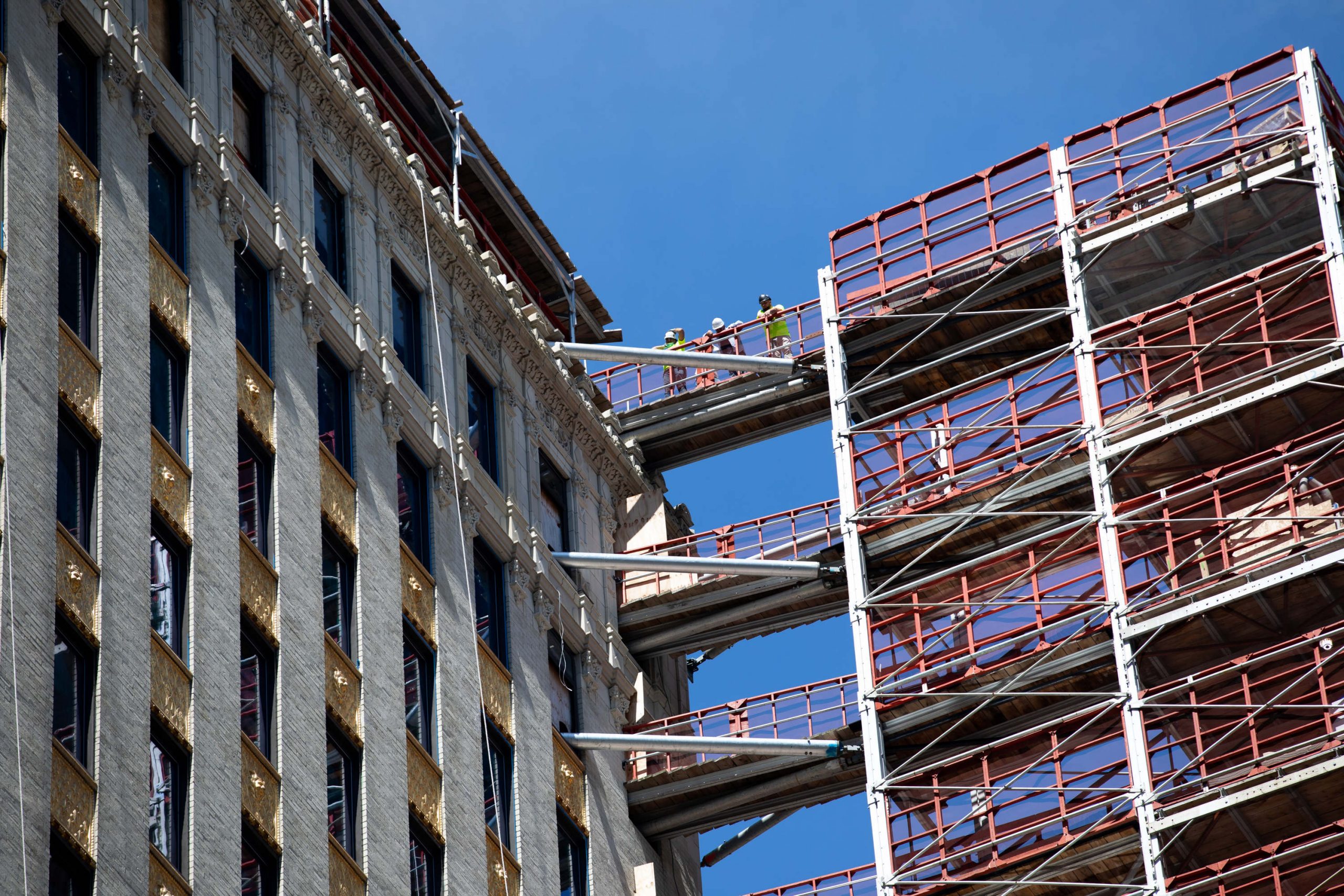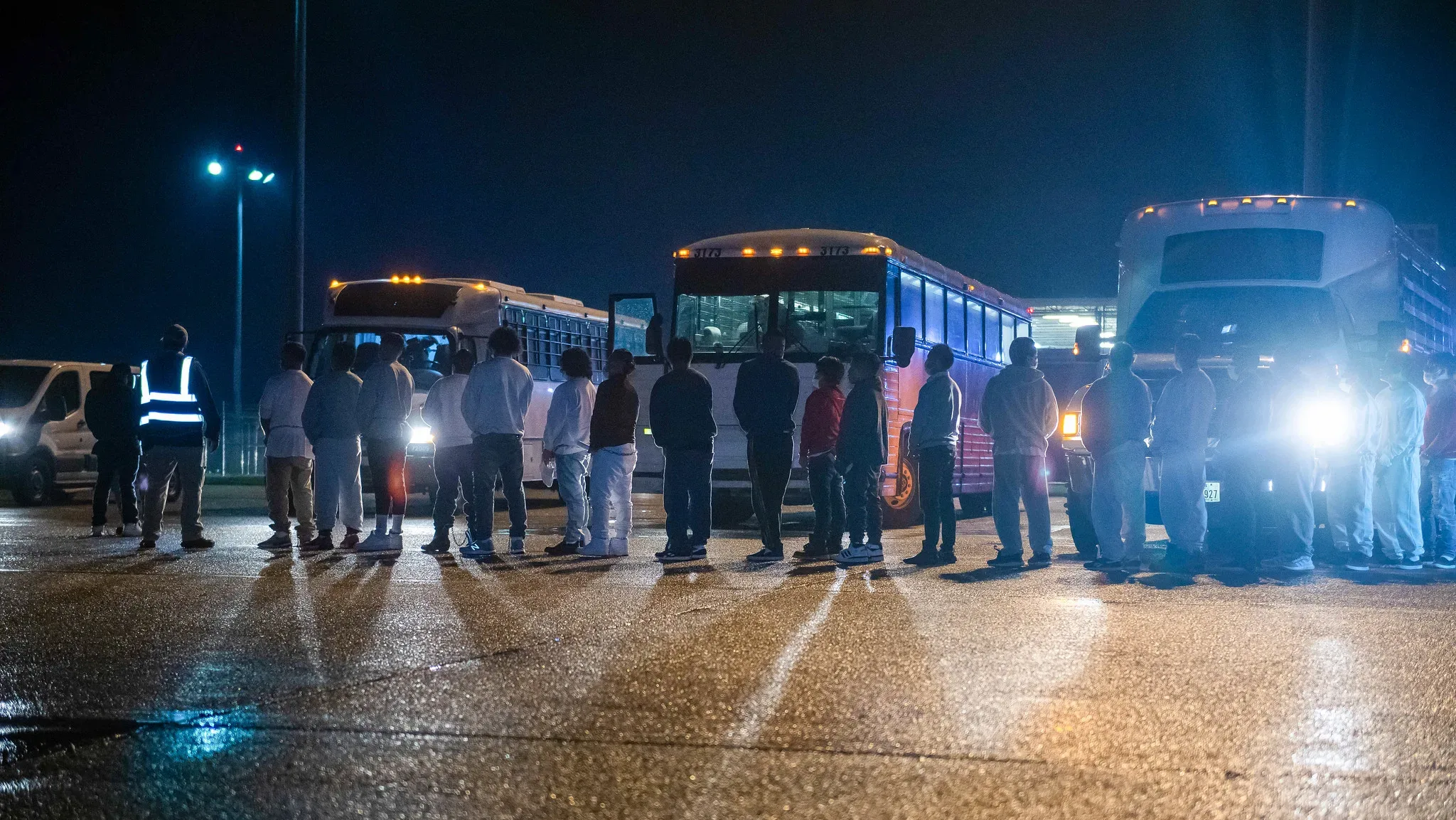Diana jumped in bed to cry after she heard the news. She first entered the United States in 2016, fleeing an abusive ex-partner who was involved in gangs in her home country of El Salvador. She had spent four years waiting for her April 2020 asylum case hearing at a New York immigration court. She learned earlier this year that her court date was pushed back to 2023 because of the pandemic.
She was told that she would have to wait three more years for a chance to stand in front of a judge. “I keep feeling more and more desperate,” Diana, who preferred to go by a pseudonym, said. “It caused me to lose my faith for a moment.”
For three additional years, she will be separated from her children who still live back home, and are now seven and 13 years old. They haven’t seen their mother since 2016.
“It makes me feel hopeless, and it fills me with anguish because I thought I would be getting a response this year,” she said in Spanish about her rescheduled court date. “It really affects me that my children are calling me and telling me that they want to be with me—but I can’t resolve anything because I just have to wait.”
In New York, cases in immigration court are being scheduled as far out as 2023, in large part because of the pandemic, legal services providers said. For immigrants who have already been waiting years to appear before an immigration judge for asylum cases, pushing dates back even further can have an array of negative consequences. Witnesses can be harder to find, facts become more difficult to recall and the mental toll of waiting in limbo for years can be crushing, advocates said.
Also read: Backlogged Immigration Courts Prepare for More Asylum Seekers
For immigrants whose children still live back in their home countries, the long wait for a court date can be particularly devastating, said Heather Axford, the legal director at Central American Legal Assistance who is representing Diana. Delayed hearings, prolong the time that individuals are separated from their children. They also expose children to the same dangers that are the basis for the parent’s asylum application for longer, something especially common in domestic violence cases, Axford said.
Every single day, Diana lives in fear that her ex-partner will harm their children like he harmed her, she said, or that he will get them entangled in a dangerous gang situation.
She escaped El Salvador to flee the physical and mental abuse she was facing from her ex-partner, who is her children’s father. But in her absence, her husband is abusing them as well, she said. “More than anything, the mistreatment they face on behalf of my ex-partner really makes me feel desperate,” she said. “They are in a very at-risk situation, a dangerous one.”
Once someone wins an asylum case, immigrants are able to file a petition to reunify with their spouse and children who are in the United States or in the home country—but this cannot happen until the applicant has actually gained asylum, Axford said.
On some dockets even before the pandemic, attorneys in New York were seeing cases scheduled out to 2023, Axford said. “But it’s certainly something that was exacerbated with the Covid shutdown—a lot of those cases got pushed out into 2023 that were supposed to go forward in 2020,” she said. “So, it’s not a new problem, but it’s one that we’re seeing more frequently now.”
The backlog in immigration court has reached a record high, with more than 1.3 million cases pending in immigration courts nationally, according to The Transactional Research Access Clearinghouse at Syracuse University. New York City immigration courts have almost 115,000 pending cases—the highest of any city in the country. On average, individuals must wait almost 1,100 days for their cases to be heard in court, according to TRAC.
The growth of the backlog in New York can also be attributed, “in small part, to the realities of the pandemic and the necessary pause of in person hearings,” said Amiena Khan, the President of the National Association of Immigration Judges who spoke to Documented at a personal capacity, not as a representative of the EOIR. But these cases, she said, “make up a nominal minority of the backlog.”
“The bulk of the backlog can be attributed to the misguided policies of the prior administration which served to exponentially increase the backlog,” Judge Khan said. The Trump-era decisions to terminate administrative closure and recalendar previously closed cases, the administration’s enforcement priorities and issuing more notices to appear all served to increase the backlog, she said.
“The Executive Office for Immigration Review’s caseloads are tied directly to, and fluctuate with, Department of Homeland Security enforcement and detention activities,” John Martin, the northeast regional spokesman for the Executive Office for Immigration Review, said in an email. “EOIR continues to manage its caseload as efficiently as possible and consistent with due process.”
On top of the psychological toll that removal and deportation proceedings have on immigrants—which is drawn out by a longer wait for court dates—the economic burden of lacking documents to work or prove an identity, taking time off from employment to attend hearings, comply with ICE check-ins and meetings with attorneys can be significant, said Jodi Ziesemer, the director of the immigrant protection unit at the New York Legal Assistance Group, a civil legal services organization.
Also read: India Travel Ban Leaves Hundreds of Employees Stranded
The New York Legal Assistance Group, has more than twenty hearings scheduled in every month from January to December of 2023, many of which were rescheduled to 2023 because of the pandemic, Ziesemer said. Though most of them are final hearings, where a case should be heard and decided, some are preliminary hearings. This means that clients and attorneys have to wait at least a year and a half before they can answer the charges, file a defense, or see any evidence that the government has against the client.
“For those cases, we anticipate many years before we can actually resolve the case,” Ziesemer said.
Facts and evidence needed for a successful asylum claim also become stale as time progresses, advocates said. For immigrants, it becomes increasingly challenging to recall specific and often traumatic details needed for a successful asylum claim in court.
“Witnesses get hard to find, and facts get old and when you’re looking at a forward-looking benefit like asylum where really the question is what happens if we go back now,” she said. “As time passes, people leave, people lose touch,” Axford said, “and suddenly someone who was a witness to what happened in 2016, we don’t even know what country they live in. So just the passage of time with distance doesn’t make it any easier.”
Diana, for one, is fearful that she will forget the memories she knows she needs to keep to make a successful claim. “I’m scared because the more that time passes, my mind blocks details that torment me and cause me anguish,” she said. “It’s difficult to remember exact dates and moments because as time goes on, the more I just want all of this to be over.”
Also read: I-589: How to Seek Asylum in the United States
In some extreme situations, it can become an uphill battle to keep track of clients as time passes, and particularly when the effects of the pandemic have prompted many people to move, said Alexandra Rizio a managing attorney at Safe Passage Project, an organization which helps find legal help for unaccompanied children. This is especially true for unaccompanied children who have less control over their family situations than adults.
“It’s not like you can ask a ten-year-old to take control of dealing with their lawyer,” Rizio said.
Diana works cleaning homes and sends money home to her parents and her children every two weeks. She speaks with her son and daughter every evening on video calls for hours and exchanges WhatsApp voice messages with them frequently. “I do everything for them, the only thing they’re missing is my presence, but for everything, they depend on me,” she said.
Her children are currently living with her mother, Diana said, but their father — her ex-partner — doesn’t live far away. The separation from her kids and the anxiety of what may happen to them has caused her to go through serious bouts of depression and panic attacks, she said.
Diana was hoping to bring her children to the United States legally after she made the dangerous trek through Mexico and into the United States, but she never guessed that it could take this long. “I was about to die on that journey, I’m not willing to put them through that,” she said. “I’d rather wait, even if my wait is excruciatingly long and painful.”
But now, she said her children are always asking when she is coming back home to them. “A lot of times they also tell me that maybe I don’t even love them,” Diana said, her voice breaking. “But my hands are tied, I can’t do anything—and I can’t go back to get them either.”
